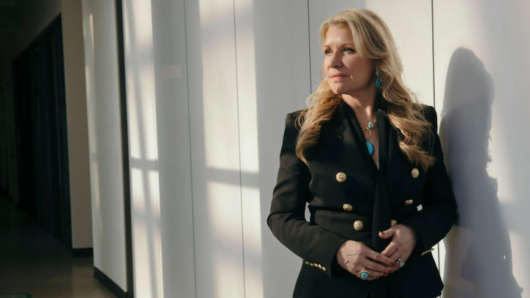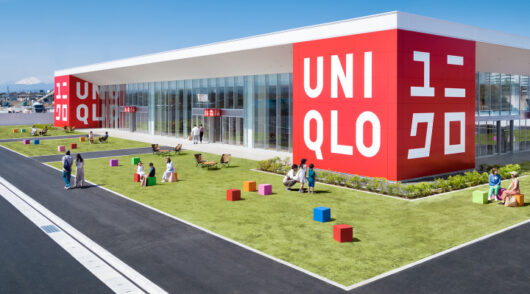Innovation is critical to the survival and growth of retail businesses of any size. But how do you innovate when resources are limited and your business is operating in silos with little cross-collaboration?
For this month’s Retail Untangled podcast series, Amie Larter of Inside Retail talked with Alita Harvey-Rodriguez – the founder of MI Academy, and the brains behind HackGames – and Jack Howes, head of funding and partnerships at HoMie. They explored the power of cross-functional collaboration and how it can unlock real-world results.
HackGames is the only retail industry hackathon where retail industry legends, thought leaders and visionaries come together to ‘hack out’ a usually theoretical solution for the industry. The aim is to teach leaders and future leaders about the innovation principles that are lacking in the retail environment and empower their teams to think differently.
This year, the HackGames switched gears from tackling theoretical retail problems to collaborating with charities. One of the participating charities, and the ultimate winner of the competition, was Melbourne-based streetwear label and social enterprise HoMie.
HoMie – which channels all of its profits into supporting young Australians affected by homelessness or hardship – uses e-commerce to drive both commercial success and social impact.
The organisation has supported about 2500 young people since its foundation in 2015 and while it accepts philanthropy, endeavours to be as independent as possible, retaining control of its own destiny and never being reliant on others to continue the work it does. HoMie is about 70 per cent self-funded, with the balance coming from private donations. It wants to elevate its self-funding ratio to 90 per cent over the coming years and believes focusing on a more efficient B2B product design offer will help it reach that goal.
“We make clothes, we’re really good at it. We’ve got all of these organisations all across Melbourne, Australia, and around the world, who are constantly needing merchandise for staff uniforms, staff days, these kinds of things, and they’ve got CSR budgets to burn. We can meet them in the middle. You’ve got this money you want to spend. You’ve got this need that we can fulfil for you and the money they contribute is doing genuine good.”
HoMie sought support from its Hack Games team in optimising and achieving efficiency within its B2B operations to scale up.
The B2B market serves as a huge opportunity for HoMie, However, it has been experiencing a major bottleneck hindering this opportunity: the process for creating custom merchandise is manual, from taking the order to uploading mock-ups, gaining approval is very labour intensive and slow, does not deliver good internal processes and customer experiences are suffering as a result. “Resources and margins are tight and it is imperative for HoMie to find a way to streamline this operation as soon as possible and to enable it to scale quickly,” reflects Howes.
During the past year, HoMie has worked with 20 B2B clients and this year it wants to scale that up to 20 clients per month. Its challenge is to create a robust solution that streamlines our B2B operations at scale despite limited budget resources, no dedicated staff, and all the usual limitations that impact not-for-profits.
Harvey-Rodriguez says two principles were deployed as a framework during the eight-hour hack: Design thinking and an approach called ‘sprint planning’. Both are concepts used for rapid innovation that originated within Google when a team was given 10 days to develop an email solution. “We don’t have 10 days, we had eight hours.”
Using a process of ideation – the formation of ideas or concepts – and setting rigid time limits ensures participants remain focused and thus productive during HackGames.
“If there are things that can be applied through bringing people together from different cross-functional collaboration, if we can make that happen and you can see the immediate benefit, it goes to show how powerful these innovation principles can be.”
Incremental innovation
Harvey-Rodriguez says businesses often go wrong by not taking innovation projects seriously – or just delegating it to an innovation team. That approach is not connected to what MI Academy specialises in which is incremental innovation, or put another way ‘How can we make small changes to impact tomorrow?’.
She says typically businesses have a lot of talent and resources dedicated to maintaining “business as usual” and the innovation tends to be farmed out to agencies.
“That’s a problem because it stops your people from being valuable. If we don’t have these innovation principles embedded and used with rhythms and rituals that are dedicated to our own businesses as part of their DNA, then we are not going to be innovators. That’s when people get bored, that’s when they’re moving on to the next new thing because the organisation does not provide people with the opportunity to think strategically on a creative scale.”
Harvey-Rodriguez also sees siloed structures as a problem within retail along with traditional cultural tendencies – along with attitudes like ‘We’ve always done things this way’ and ‘We don’t have enough time’. She counsels that businesses that want to innovate have to split the focus of teams 80-20, with the 80 per cent being business as usual and 20 per cent dedicated to innovation and strategic planning.
Walls between teams need to come down so that if the marketing or product team come up with a great idea, the two teams talk to each other and then engage, for example, the finance department.
“Otherwise, ideas fall off a cliff. New business comes in as usual, and we get stuck in this reactive cycle as opposed to the proactive cycle we need. So building cross-functional teams is a really important part of the HackGames environment and showing leaders exactly what they can do if they just think differently about how they structure their project teams.”
Harvey-Rodriguez wants to encourage more businesses to adopt simple frameworks like the ones used in HackGames so they can innovate incrementally, as opposed to disruptively.
“We are in a really tough time for retail. Now is not the time to do something big, to do something meaningful within an incremental innovation framework.”
Howes says the process of collaboration and creativity allowed the team to take a step back and take a new perspective on the enterprise’s challenge. “If you work to bring in fresh eyes from vastly different skill sets and backgrounds you get so many new ideas, new ways to tackle problems you have. So it was a really good day and it was exciting as well.”
He says he walked away from the event thinking this is the sort of approach every business should be incorporating into its processes.
“So many of the principles are things you can take to your team and do internally – nothing is stopping you from having cross-departmental hacks. People get so fixated with the way they have always done things. Maybe that works or has worked up to a point, but what’s the harm in trying something new?”






